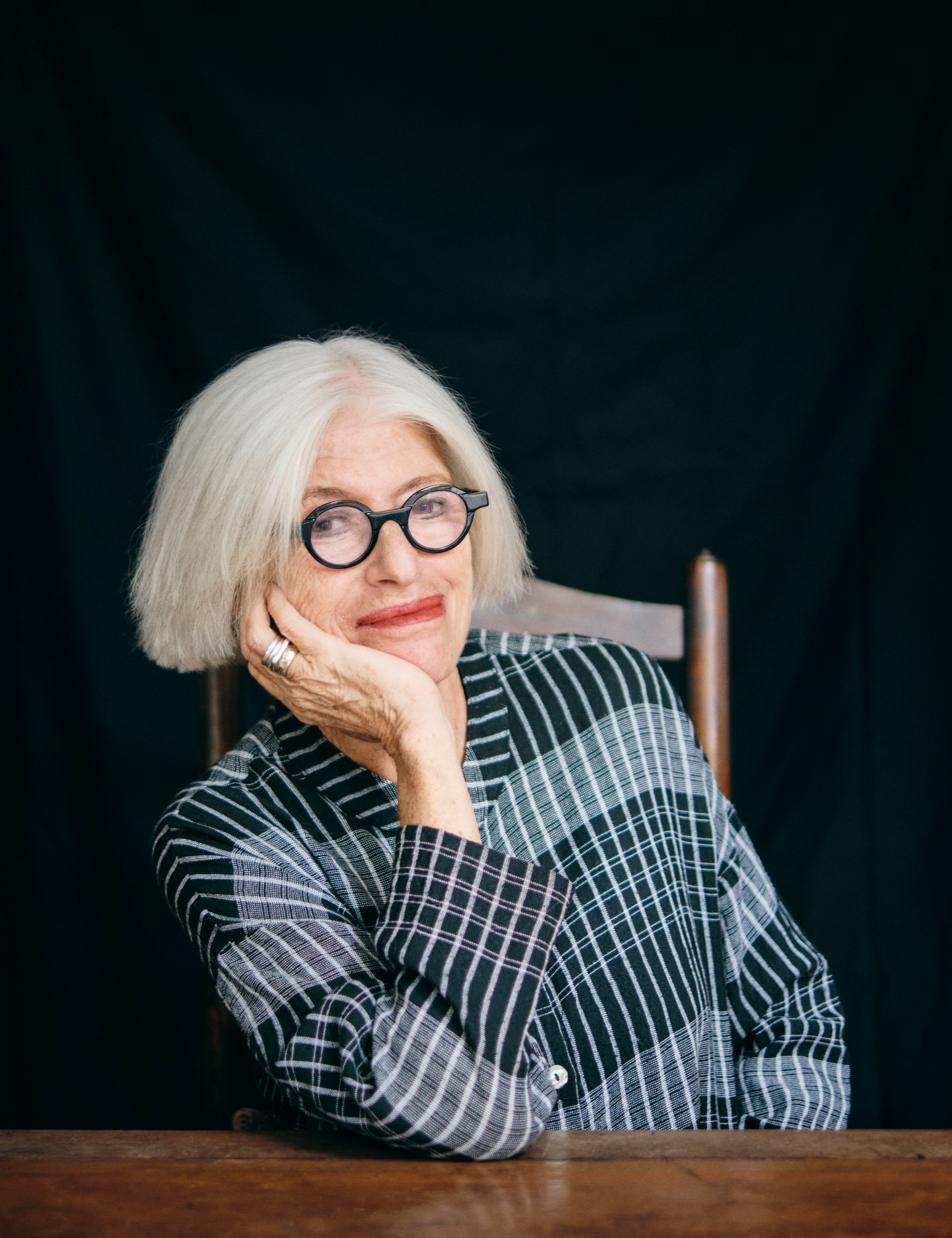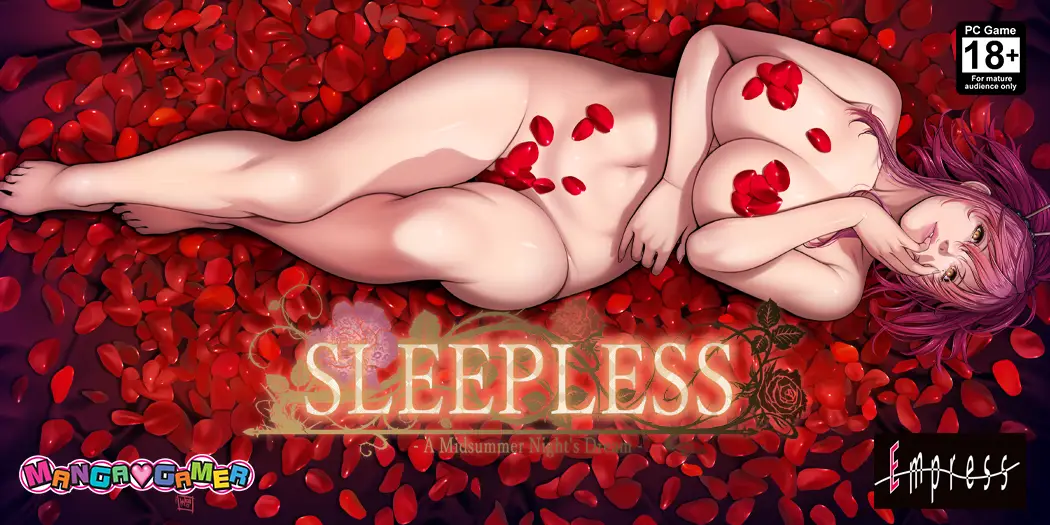Gabrielle Rifkind operates in the shadows, in the quiet, dark, back rooms of international politics. A bit paradoxically, the 71-ish Londoner strikes a sharp pose: outré pantsuits, dresses. Cool, kooky glasses. A white shock of bobbed hair. Upon meeting her, you really want to talk to her. Which is perhaps the point: The peacemaking organization Rifkind founded in 2016—the London-based Oxford Process—is all about facilitating dialog. Except they do this, as their website says, “far from the public gaze.”
Rifkind is not connected to any official government, but she has spent the past two decades trying to make possible the conditions for peace between, oftentimes, sworn enemies. She has worked in off-the-record meetings on Syrian proxy wars, the Iran nuclear talks. Because of her background, she’s often looking for and at the roots of trauma. As she said in a piece in the Guardian at the start of the Ukraine war, “We should not underestimate the link between humiliation and aggression.” Her recent weeks and months (and years) have been busy.
Vital work. Yet, as she says, “there’s a strange paradox because, in some ways, I think it’s incredibly important to talk about these ideas, and yet you also have to remain off the radar.” Which means, while she can’t spill her secrets, she’s got plenty to say about the distressingly endless task at hand.
This interview has been edited and condensed for length and clarity.
Maria Streshinsky: How does the Oxford Process work?
Gabrielle Rifkind: A lot of what we want to do is to try and set up communication quietly behind the scenes between warring parties. We’re a very small organization, but we are very privileged to have ex-foreign ministers, ex-ambassadors who work with us and give up their time pro bono. Funding can be an issue for us because of the fact that we don’t take sides. People can find that difficult. They want there to be good people and bad people in the world.
Your background is in psychology. How did you end up setting up secret meetings to end wars?
In 2000, I was invited to Israel to teach 50 group analysts to work with trauma. I went to the country 26 times over two years. It was the height of the second Intifada, a period of suicide bombing. It seemed to me that in the end I didn’t want to work with individual people who’d been traumatized. Rather, the whole political system on both sides between the Israelis and the Palestinians seemed traumatized, linked to their own histories, the Holocaust, the Nakba. I’m not comparing the two; they are different, but it seemed a lot of the reactions that were happening had a lot to do with history and trauma. It also seemed to me that for years we’ve known of possible solutions, but nobody’s been in the right state of mind. So I decided I would try and work politically, on both sides.
How did you begin that process?
The first thing I did was work with Palestinians, trying to work across the board with Fatah and Hamas to see if they could have a common vision to end conflict. And amongst the Israelis with the religious groups, the secular groups, those on the political left and right, because you have to have strategic coherence amongst both sides if people are going to prepare for peace.
I also understood that a huge piece of this conflict was about Israel’s relationship with Iran, so I managed to travel to Iran and then started building relationships there. I kept wondering, could we do some kind of back channel between Iran and Israel?
I’ve heard you speak about empathy, about how it is a necessary factor.
I suppose I have a talent for building relationships. When I was in Tehran in 2006 I met Giandomenico Picco, who became my coauthor on The Fog of Peace. He’d been involved in ending the Iran-Iraq war and the hostage releases in Lebanon in the ’90s. There was a quick chemistry between us because he’d risked his life on many occasions and had post-traumatic stress disorder, and I understood what this meant and how it had affected him. I learned a great deal from him.
We shared a belief in the importance of humanizing relationships even in areas of conflict. We believed that behind the politics is an ordinary human face of an ordinary human being. Picco also understood that behind even men of violence, they were still people with children. Psychologically I believe people are not born violent. It’s the conditions to which they’re exposed that makes people express themselves in this way.
This keeps you going, keeps driving you?
I suppose I think the thing that drives me is, even people who’ve done the most heinous things, there’s always a human face somewhere. What I mean when I say heinous, well, we say what terrorists do in the use of violence is deeply disturbing, but so is state violence sometimes. But if you have the legitimacy of the state and you have an army, somehow it seems to be legitimate. We don’t question that in the same way.
Have you come across anyone without any humanity in them?
This has never happened; I have not found people who do not have a human face in some way. I’ve found that there is almost always a way of making a human connection; most people are reachable.
You mentioned Hamas reached out to you.
In 2006, just after Hamas had won the elections, there were openings. The leadership of Hamas reached out and asked me, via a journalist, to pass a message to the Israeli government. They wanted to start communicating with the Israelis initially about goods being sent across the border as a small step to building the relationship. But the Israelis were so traumatized by the second Intifada and the violence with the suicide bombing, it was unthinkable to engage with Hamas. So an opportunity was missed.
Your background comes back into play.
You see, the psychological impact of trauma makes it unthinkable to make pragmatic deals, yet there are things that could be done that are in people’s best interest. The intensity of the emotions often inhibits rational politics. I also think that’s not acknowledged enough in the political process.
There’s a story I heard about Hillary Clinton and Vladimir Putin at a dinner. She mentioned to him that she’d seen the memorial honoring the horrifying siege of Leningrad; that compelled Putin to tell her a story about how, during that siege, his own mother had been left to die in a pile of bodies. His father, a soldier at the time, managed to pull her out of the pile and nurse her back to health. Clinton’s implication was this story, if true, has driven so much about how he thinks about Russia and the country he wants it to be.
I think one’s own personal story is hugely important in shaping how we see the world. I thought you were telling it because of the potential for an empathic connection, and a better understanding of each other. He’s had a very, very harsh background and a background that says you can sacrifice people. The Russian psychology at times is cruel because of the suffering.
What about your work with Ukraine and Russia?
In February of 2022, at the outbreak of the war, we started regular communication between Ukraine and Russia to explore what openings there were to end the war. There were possibilities for high-level back-channel discussions which I can’t be too explicit about, but we needed the blessing particularly of the US government. In the end, politics gets in the way of peacemaking because politicians are always looking to the next election and sometimes you have to take risks and build bridges with the enemy. Politicians worry if these back channels get exposed, the people find this unacceptable.
You have to consider, the Western press will report about war without history and context. There were quiet talks between the US and Russia before the start of the war in 2022. Russia wanted their security needs to be acknowledged and wanted some kind of agreement that Ukraine would remain neutral. We weren’t prepared to give this, because we thought that Ukraine should be entitled to have a choice about whether they wanted to join NATO. Ukraine might have been safer if this option had been pursued. I can’t say the war would have been definitely avoided, but it might have been if Ukraine had agreed to neutrality at this point.
And now there is so much more trauma.
The Western liberal notions of freedom paradoxically mean that we in the 21st century have gone to war more than any other countries, but we think we’re doing it in the name of democracy and freedom. There’s nothing liberal about going to war. These consequences can create so much more suffering and chaos for people afterward, and often this leads to much more authoritarian governments being in power.
After 9/11 and the traumatic impact, it became part of the political currency that you were entitled to hit back. But why do you have to hit back? In ordinary relationships, someone hits a kid, you don’t tell the kid to hit back. You tell the kid to learn to be restrained and to stop the cycle of violence. We seem to be getting into these escalatory ladders. What would happen if we paused and took the moral high ground and did not hit back ? People will say you look weak, but that’s a very male psychology. There’s nothing weak in pausing and thinking about ways to find alternatives that do not use violence but move us in the direction of peacemaking. I’m not saying you can always do this. I’m not a pacifist, but we’ve seen the horrors of war and how they have made the world so much more unsafe.
Why do you say you aren’t a pacifist?
Because I don’t come from an ideological position. I’m a pragmatist. I’m interested in how you can prevent war or intervene early enough to prevent the escalation of war.
If you take Israel and Palestine, they have parallel narratives and a completely different experience of their histories. I used to think you put them in the same space and it would create empathy and understanding and they’d find their common ground. I don’t believe that anymore. When people are very traumatized, the capacity to hear the other is destroyed. What they need to do is respectfully listen to their differences and then look at what kinds of accommodations can be made while managing their profoundly radical different ways of seeing without resorting to violence.
As I said in my TED talk, countries seem to know how to go to war, but we don’t know how to exit, and the longer war goes on, the harder it is for people to want to compromise, because people have suffered and sacrificed so much.
About exiting war, you’ve talked about an opportunity, at about the three-month point in a war …
This is not scientifically proven, but a lot of specialists in conflict resolution have suggested that three months is a very important moment. I think you could liken it to a divorce: If you get to talking early enough, the couples don’t do each other too much harm and it is easier to negotiate a compromise. If you leave it too long, they fight in the courts and they eat up all their resources and they often move to contempt and humiliating each other.
Because, as you say, there are too many layers of pain.
I mean, trauma is rather an overused word nowadays, and everyone has had a different kind of trauma today. We tend to talk about trauma, but actually I think we’re talking about very deep experiences that have created so much psychic disturbance that it makes it very difficult to understand the experience of the other, and until that trauma’s addressed or recognized, any kind of empathy is very difficult.
Is your work getting harder?
Paradoxically, when there was a Cold War it was clear who the enemies were with the parties around the peace table. In the Syrian war, in the Istanbul talks in the early days of negotiations they had about 42 countries sitting around the table. The conditions for peacemaking have hugely deteriorated. That is one of the reasons I talk about the importance of empowering the UN again. It is today a weakened institution, and people have lost respect and trust in it. But you need more of a third-party neutral presence in peacemaking.
Can you talk a bit about what you’re working on now?
Not really.
Why?
Well, there are two conflicts that I work most actively on, Ukraine-Russia at the moment and I work on Palestine-Israel.
Say more about why you can’t say more.
You need to have trusted relationships with governments, and that requires working quietly behind the scenes and off the record. There’s a strange paradox, because in some ways I think it’s incredibly important to talk about these ideas, and yet the paradox is you also have to remain off the radar.
How do you keep doing this when things keep getting harder? Is that a silly question?
It’s not a silly question. How do you keep your resilience?
So much of our work is, I will open a door, a political door, maybe it’s a very high level and I can’t quite believe I’ve done it. And then the door will slam into my face. That’s a normal part of the work. There are so many forces greater than us, but I suppose within me, to not keep going would be harder than to keep going.
On the way over here, I asked you what you thought about the party TED threw on the last night there, the big, wild, circus-themed party. You said on the one hand, it was lovely, on the other, it made you think of Germany in the ’30s.
Cabaret.
Cabaret.





![daily-report-about-my-witch-senpai-volume-1-[manga-review]](https://sharethelinks.com/wp-content/uploads/2024/08/200364-daily-report-about-my-witch-senpai-volume-1-manga-review.jpg)
![the-girl-i-want-is-so-handsome!-[manga-review]](https://sharethelinks.com/wp-content/uploads/2024/08/200366-the-girl-i-want-is-so-handsome-manga-review.jpg)


